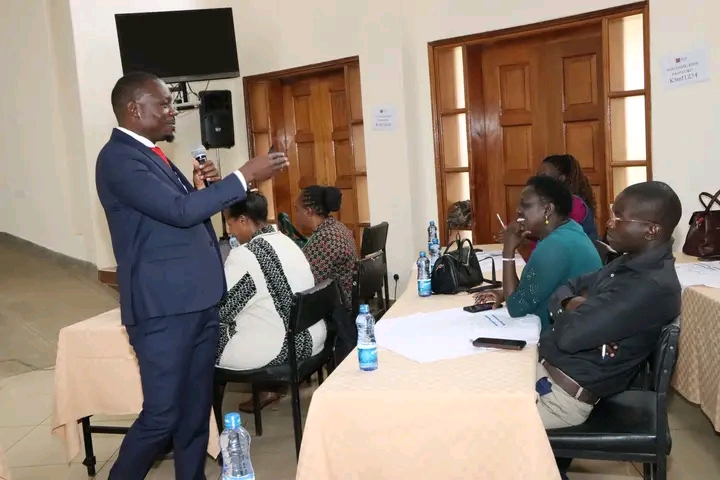Nairobi,
Monday March 25, 2024
KNA by Michael Omondi
The government and her key partners have embarked on a fact finding mission to evaluate the impact of the Kenya Primary Education Equity in Learning (KPEEL) program in sampled schools across the country.
The technical team led by senior officials from the Directorate of Projects Coordination and Delivery in the Ministry of Education are on a ten days field visit to review the status of the four year Program launched in 2022.
In a press statement, KPEEL Project National Coordinator Martha Ekirapa said that the exercise which is under the fourth implementation support mission is expected to cover at least 13 counties between 20th to 29th March.
She added that the technical teams comprising officials from multinational organizations including the World Bank, UNHCR, and other stakeholders under the KPEEL, are expected to submit their findings for discussions at the Kenya Institute of Curriculum Development at the end of the mission.
Meanwhile, World Bank senior education specialist and team leader KPEEL Ruth Charo and the Director in charge of Directorate of Projects coordination and delivery Elijah Mungai last Thursday jetted into Lodwar town to kick off the countrywide exercise in Turkana County.
The team visited schools in the Kakuma refugee camps where the Department of Refugees services in collaboration with the United Nations High Commission for Refugees (UNHCR), Jesuit Refugee Services, and other partners put up new schools for the assimilated refugee community who were permanently resettled in the country.
Some of the counties enlisted for the review include Turkana, Samburu, Bungoma, Siaya, Kisii, Bomet, Narok, Kisumu, Kakamega, Uasin Gishu, Nakuru Mombasa and Kwale where the teams will assess sample schools and collate the impact of the KPEEL program on the learning environment.
Notable outcome realized during the mission is the positive impact the school feeding and scholarship component of the program has on learners within refugee communities at the UNHCR Kakuma Refugee camps after it emerged that the initiative has drastically improved the previously worrying retention and transition rates of girls.
The four-year multibillion project IDA credit of USD 160 Million and a USD 40 million grant from the refugee window was rolled out in 2022 for a four-year implementation in which the government was to contribute Sh1 billion to the kitty.
Mungai however cautioned school administrators that the disbursement of the Sh 480, 000 grants under the 22022-2026 KPEEL Program will be pegged on the Performance for Results indicators whereby subsequent continuity in funding will be subject to the achievement of specific results, as measured by the seven Disbursement Linked Indicators (DLIs).
The program running concurrently with the government’s NESSP II initiative is tailored to thaw out inequities in access to quality basic education with deliberate focus on the girl child including those within and around the refugee camps.
Further, the Program which intends to reduce disparities in learning outcomes, improve the retention of girls in upper primary education, and strengthen systems for equitable education outcomes, is set to benefit at least six million learners in primary schools including about 221,529 children in refugee hosting counties.
Bottomline, the program encompasses components of infrastructure development, school meals, environment, governance and accountability to ensure that desired results in areas including improved learning outcomes are realized.
Courtesy; KNA


